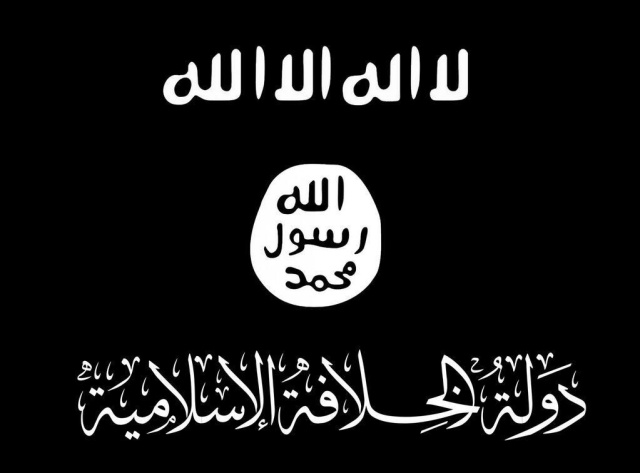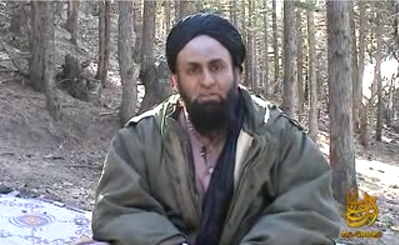NOTE: As with all guest posts, the opinions expressed below are those of the guest author and they do not necessarily represent the views of this blogs administrator and does not at all represent his employer at the Washington Institute for Near East Policy.
Jihadology.net aims to not only provide primary sources for researchers and occasional analysis of them, but also to allow other young and upcoming students as well as established academics or policy wonks to contribute original analysis on issues related to jihadism. If you would like to contribute a piece, please email your idea/post to azelin [at] jihadology [dot] net.
Click here to see an archive of all guest posts.
—
The Syria Twitter Financiers Post-Sanctions
By Asher Berman
Introduction
A new type of financier supporting Islamist armed groups emerged during the initial years of the Syrian conflict. These Gulf-based financiers openly advertised their activities on social media, using the medium to attract donations from across the Gulf. In some cases, they publicly documented their successive trips to Syria and meetings with prominent Islamist rebel leaders, which made them celebrities in the Islamist Twitter scene. One particularly prominent network of financiers was associated with the Umma Party, a Salafist opposition movement that was started in Kuwait in 2008 and spread to other Gulf countries during the Arab Spring. Other financiers worked independently or banded together to form joint fundraising campaigns.
The international community moved slowly to neutralize these financiers, but in August 2014, the US government sanctioned two of the most prominent individuals, Hajaj al-Ajmi and Shafi al-Ajmi of Kuwait.i The UN also sanctioned Hajaj and Shafi, and Kuwait, through which most of the money was being funneled, passed laws designed to end the use of Kuwait as a weigh station for money moving to terrorist groups abroad.ii,iii,iv The financiers, both sanctioned and unsanctioned, have greatly curtailed their activities since August 2014 and have seen their celebrity diminished. Those who are still active use social media to fundraise for humanitarian projects in Syria and are no longer publicly supporting armed groups. The one exception is ‘Abdullah al-Muheisini, who is unique in that he left the Gulf and lives inside Syria fulltime. Although the sanctions announced in August 2014 did not target all of the individuals publicly fundraising for Islamist armed groups in Syria, it did create a new environment in the Gulf in which these activities are no longer being tolerated and seem to have stopped. The one exception, al-Muheisini, lives in Syria and is therefore not subject to the same governmental pressures as Gulf-based financiers.
The Financiers:
Hajaj al-Ajmi: Hajaj al-Ajmi was a relative unknown prior to the start of the Syrian conflict in 2011, but he skillfully used social media to attract attention by documenting his successive trips to Syria, and quickly became well known in the Middle East. After the US announced sanctions targeting Hajaj, Twitter shutdown his account. Hajaj quickly created a new account and a hashtag was circulate called “#Campaign_for_a_million_followers_for_Hajaj_al-Ajmi” which helped him regain roughly 100,000 followers of the nearly 500,000 that he had pre-sanctions.v Hajaj, still an active social media user, seems to feel that the sanctions are unfair, recently complaining on Twitter that members of the Kuwaiti parliament continue to support the al-Assad regime without consequence, while he was sanctioned and can no longer engage in normal business activities.vi Hajaj appears to be struggling to adapt to life under sanctions. He told an interviewer that he is trying to work in the perfume business but cannot get the government to register a car or business in his name.vii His contacts in Qatar reportedly invited him to work with them, for which Hajaj expressed his appreciation on Twitter, but regretfully declined the offer due to an ongoing travel ban.viii
Although Hajaj was sanctioned by the US and the UN, sanctions did not target the charity that he ran and utilized to fundraise for armed groups in Syria, al-Haiah al-Sh’abiyah l-D’am al-Thawrah al-Suriyah (The Popular Commission to Support the Syrian Revolution), nor his partner in running the charity, Umma Party member Irshid al-Harji. The charity remains operational under al-Hajri’s leadership, but has changed its name to al-Haiah Zakat al-Sh’abiyah (The Popular Charity Commission).ix,x Despite the name change, the charity is using the same logo, Twitter account, and directs donors to the same address in Kuwait’s Aqilah neighborhood as prior to August 2014.xi,xii The organization now focuses on distributing relief in Syria, and recently delivered supplies to Syrians in Idlib and Lattakia Provinces in cooperation with the Umma Party’s Istanbul office.xiii
Muhamed al-Mufrih: Muhamed al-Mufrih was a Saudi-Arabian financier and head of the Saudi branch of the Umma Party, which formed in 2011 at the beginning of the Arab Spring. Saudi authorities, who do not permit organized opposition movements, quickly arrested the Umma Party leadership, but al-Mufrih was able to flee the country, surfacing in Istanbul. During the Syrian revolution al-Mufrih appears to have played an important role in the constellation of Umma Party-associated financiers, accompanying Hajaj al-Ajmi on trips inside Syria and dedicating an Umma Brigade training camp in honor of a United Arab Emirates Umma Party leader who was killed while fighting with Ahrar al-Sham.xiv,xv
Al-Mufrih died in December 2014 following a sudden and mysterious illness. Hakim al-Matiri, founder of the Umma Party, characterized al-Mufrih’s death as an assassination-by-poisoning, which was understood as an accusation aimed at the Saudi Arabian government.xvi The possibility of al-Mufrih getting assassinated was on the minds of the Ummah party leadership prior to his death in December 2014 due to assaults targeting al-Mufrih that occurred earlier in 2014 in Istanbul. The Umma Party responded to the preceding assaults by publishing a public letter to Turkish officials in May 2014 calling on the Turkish state to protect al-Mufrih from assassination.xvii
Al-Matiri’s eulogy for al-Mufrih provided greater detail on al-Mufrih’s role in financing Islamist groups in Syria. Al-Matiri cited al-Mufrih’s early involvement in the Syrian revolution, praising him for working with Abu Abdul Aziz al-Qatari in 2011 to support Ahrar al-Sham, a Salafist armed group that operates alongside al-Qaeda’s Jabhat al-Nusrah, while it was in its formative stages. Al-Qatari was a veteran of the Afghan Jihad in the 1980s and was known for being close with Jabhat al-Nusrah. He founded and led Jund al-Aqsa, a jihadist group based in Idlib Province, until he was captured and killed in 2014 by the Syrian Revolutionaries Front.





